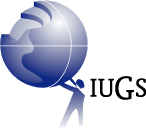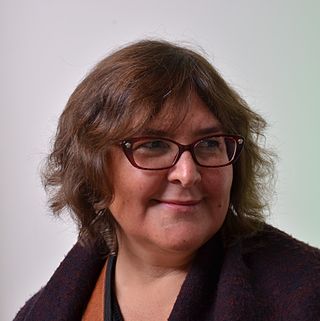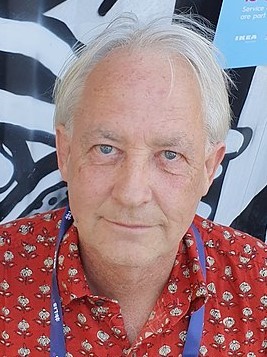
The history of the Internet has its origin in the efforts of scientists and engineers to build and interconnect computer networks. The Internet Protocol Suite, the set of rules used to communicate between networks and devices on the Internet, arose from research and development in the United States and involved international collaboration, particularly with researchers in the United Kingdom and France.

The Internet is the global system of interconnected computer networks that uses the Internet protocol suite (TCP/IP) to communicate between networks and devices. It is a network of networks that consists of private, public, academic, business, and government networks of local to global scope, linked by a broad array of electronic, wireless, and optical networking technologies. The Internet carries a vast range of information resources and services, such as the interlinked hypertext documents and applications of the World Wide Web (WWW), electronic mail, telephony, and file sharing.
The Association for Progressive Communications (APC) is an international network of organizations that was founded in 1990 to provide communication infrastructure, including Internet-based applications, to groups and individuals who work for peace, human rights, protection of the environment, and sustainability. Pioneering the use of ICTs for civil society, especially in developing countries, APC were often the first providers of Internet in their member countries.
Cyberterrorism is the use of the Internet to conduct violent acts that result in, or threaten, the loss of life or significant bodily harm, in order to achieve political or ideological gains through threat or intimidation. Emerging alongside the development of information technology, cyberterrorism involves acts of deliberate, large-scale disruption of computer networks, especially of personal computers attached to the Internet by means of tools such as computer viruses, computer worms, phishing, malicious software, hardware methods, and programming scripts can all be forms of internet terrorism. Some authors opt for a very narrow definition of cyberterrorism, relating to deployment by known terrorist organizations of disruption attacks against information systems for the primary purpose of creating alarm, panic, or physical disruption. Other authors prefer a broader definition, which includes cybercrime. Participating in a cyberattack affects the terror threat perception, even if it isn't done with a violent approach. By some definitions, it might be difficult to distinguish which instances of online activities are cyberterrorism or cybercrime.

The International Union of Geological Sciences (IUGS) is an international non-governmental organization devoted to international cooperation in the field of geology. As of 2023, it represents more than 1 million geoscientists around the world.
Technology governance means the governance, i.e., the steering between the different sectors—state, business, and NGOs—of the development of technology. It is the idea of governance within technology and its use, as well as the practices behind them. The concept is based on the notion of innovation and of techno-economic paradigm shifts according to the theories by scholars such as Joseph A. Schumpeter, Christopher Freeman, and Carlota Perez.

Women of Uganda Network (WOUGNET) also known as Women of Uganda Network Development Limited is Ugandan non-governmental organization that aids women and women's organisations in the use and access of information and communication technologies (ICTs) to share information and address issues their concerns such as gender norms, advocating for their rights and building communities and businesses through education.

The International Gliding Commission (IGC) is the international governing body for the sport of gliding. It is governed by meetings of delegates from national gliding associations.
Japan Computer Access Network (JCA-NET) is a Tokyo-based group aligned with the progressivism political philosophy that aims at empowering citizen's activities through the Internet.
GreenNet is a not-for-profit Internet service provider based in London, England. It was established in 1985 "as an effective and cheap way for environmental activists to communicate". In 1987 the Joseph Rowntree Charitable Trust gave GreenNet a grant to enable it to bring a large number of peace groups online, and "After a few years they became one of the first internet service providers in Britain". GreenNet formed an international link with IGC and was a founder member of the Association for Progressive Communications, established in 1990. The registered charity GreenNet Charitable Trust was established in 1994 and owns GreenNet.
The EnviroLink Network serves as a clearinghouse for environmental information on the Internet, as well as providing free services to help progressive organizations adopt emerging technologies. The EnviroLink Network with EIN 25-1721380 tax exempt status was revoked on the 5th of May 2012 with revocation posting date of 11 February 2013.
The Internet in Kazakhstan is growing rapidly. Between 2001 and 2005, the number of Internet users increased from 200,000 to 1 million. By 2007, Kazakhstan reported Internet penetration levels of 8.5 percent, rising to 12.4 percent in 2008 and 34.3% in 2010. By 2013, Kazakhstani officials reported Internet penetration levels of 62.2 percent, with about 10 million users. There are five first-tier ISPs with international Internet connections and approximately 100 second-tier ISPs that are purchasing Internet traffic from the first-tier ISPs. As of 2019, more than 75% of Kazakhstan's population have access to the internet, a figure well ahead of any other country in Central Asia. The Internet consumption in the country rose from 356 PB in 2018 to 1,000 PB in 2022.
Participatory Web 2.0 for development was a term coined around 2007-2008 to describe new ways of employing legemvweb services, in order to improve information sharing and collaborative production of content in the context of development work. Emerging developments in participatory Web and user-generated content platforms were seen to create conditions by which actors in development could easily relate to other stakeholders, have selective access to information, produce and publish their own content and redistribute pieces of content released by others. At this time, new social tools, such as wikis, blogs, and other user-generated content platforms, were first being considered for their ability to help development actors integrate, combine, aggregate, generate, moderate and mediate content. In a typical Web2forDev scenario data and/or functionalities from a number of free/low cost online applications are combined and served as mashups thus ensuring a wide range of online services at low cost. The term is no longer used in the development informatics or ICT4D fields.

May First Movement Technology formerly known as May First/People Link (MF/PL) is a non-profit membership organization that uses mutual aid to provide Internet services, such as web hosting to progressive organizations and individuals. Founded in 1995 and based in New York City, MF/PL is one of the Internet's oldest progressive organizations. A member of Association for Progressive Communications, MF/PL directors, leaders, and members agree upon principles of progressive use of technology, outlined by a Statement of Unity.

The International Growth Centre (IGC) is an economic research centre based at the London School of Economics, operated in partnership with University of Oxford's Blavatnik School of Government.
Karen Banks is a British computer networking pioneer who was inducted to the Internet Hall of Fame in 2013 as a "Global Connector".

Anriette Esterhuysen is a human rights defender and computer networking pioneer from South Africa. She has pioneered the use of Internet and Communications Technologies (ICTs) to promote social justice in South Africa and throughout the world, focusing on affordable Internet access. She was the executive director of the Association for Progressive Communications from 2000 until April 2017, when she became APC's Director of Policy and Strategy. In November 2019 United Nations Secretary-General António Guterres appointed Esterhuysen to chair the Internet Governance Forum’s Multistakeholder Advisory Group.

Mike Jensen is a South African ICT expert who was inducted into the Internet Hall of Fame as a "Global Connector" in 2017. He is particularly known for his work to build networks connecting the non-profit sector and for assisting developing countries to establish network connectivity.







